In the heart of New York City, amidst the hustle and bustle of urban life, a small drama unfolds. A squirrel, perched on a park bench, meticulously examines an acorn, turning it over in its tiny paws.
A group of children, their attention diverted from their ice creams, watch in fascination. One brave soul ventures closer, offering a piece of his cookie.
The squirrel hesitates for a moment, then dashes away, its fluffy tail bouncing behind it. The children laugh, the moment passes, and life goes on.
But for that squirrel, the quest for food is a never-ending cycle, a dance of survival. And at the heart of this dance are nuts, the squirrel’s staple. These seemingly inconspicuous seeds play a pivotal role in the life of this agile creature, and in the ecosystem at large.
Join us as we delve into the fascinating world of nuts and their significance in a squirrel’s diet, a tale that intertwines the simple joys of nature with the intricate web of life.
Nuts: The Squirrel’s Staple
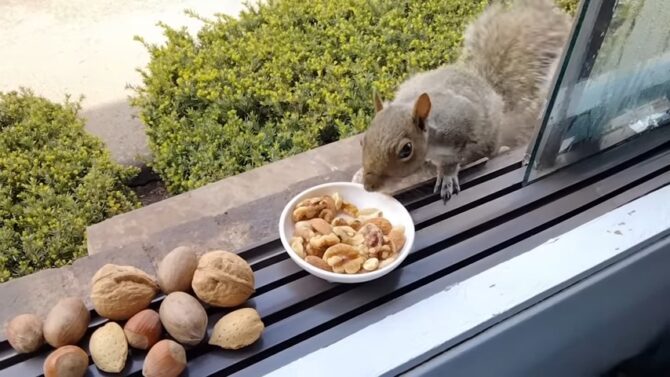
Nuts are more than just a crunchy snack for squirrels; they are a lifeline. These hard-shelled treasures are nature’s way of ensuring that squirrels, among other creatures, have a reliable food source throughout various seasons.
The Nutritional Powerhouse
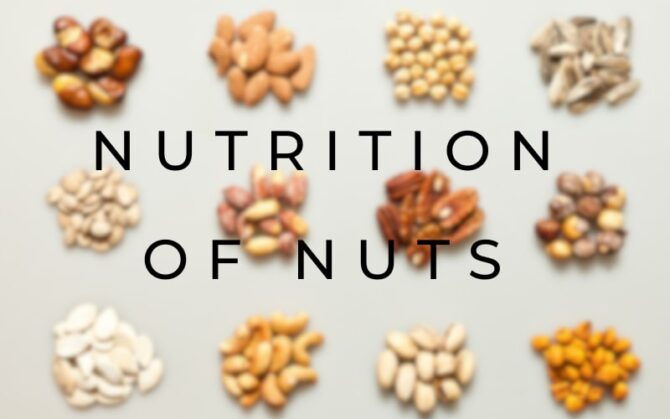
When we think of squirrels, the image that often comes to mind is a furry critter with a nut held tightly in its paws. This isn’t just a stereotype; nuts are a cornerstone of the squirrel diet.
But why are they so essential? Nuts are nutritional powerhouses.
They are densely packed with protein, which is crucial for muscle repair and growth. The fats present in nuts are the good kind, providing long-lasting energy and aiding in the absorption of certain vitamins.
Moreover, the calories in nuts ensure that squirrels have the energy reserves they need, especially during the colder months when they are less active.
Acorns: The Oak’s Gift
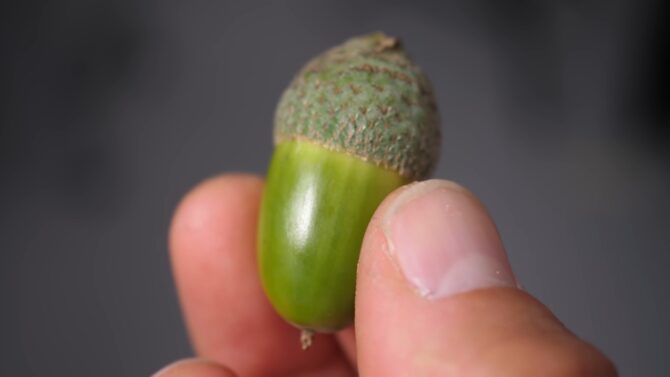
Acorns, the seeds of oak trees, are often a squirrel’s first choice. Different species of oak trees produce acorns with varying tastes, and squirrels seem to have their preferences.
These nuts are not just a source of nutrition but also a means of survival. Squirrels will often bury acorns to tap into during winter, and in doing so, they inadvertently aid in the propagation of oak trees.
Walnuts: The Backyard Delight
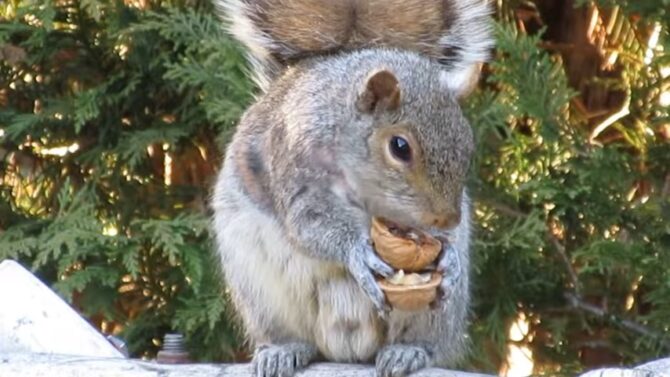
If you’ve ever found a half-eaten walnut in your garden or seen a squirrel darting up a tree with one, you’ve witnessed their love for walnuts. These nuts, with their hard shell and rich, meaty interior, are a favorite.
Squirrels have sharp incisors that make it easy for them to crack open the tough exterior and get to the nutritious core.
Hickory Nuts: The Winter Reserve
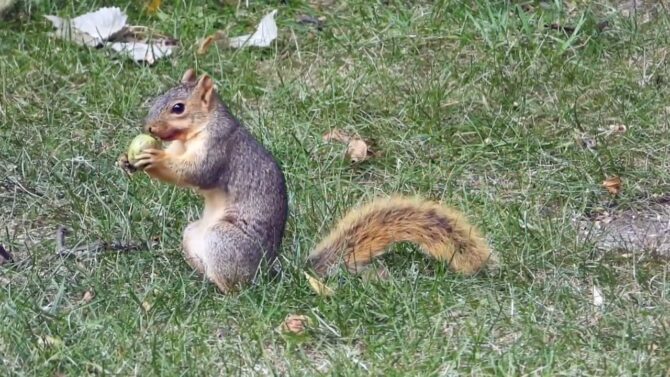
Hickory nuts have a tough shell, but the effort to crack them open is well worth it for squirrels. Rich in fats and calories, these nuts are often stored away as a winter reserve.
When food is scarce, and the ground is covered in snow, these cached hickory nuts become a vital food source.
Seeds: Energy Boosters
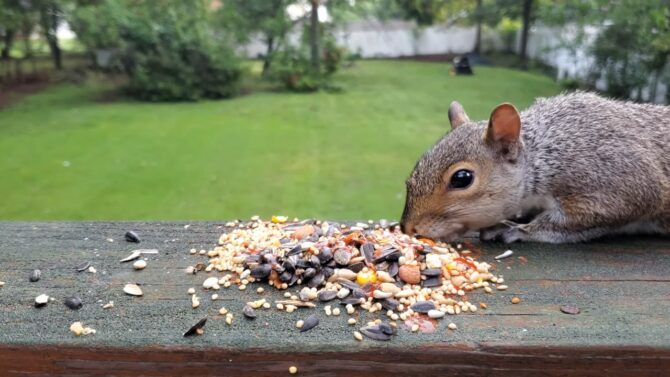
While nuts are a staple, seeds play an equally important role in a squirrel’s diet. These tiny packets of energy are especially crucial during seasons when nuts are less abundant.
Sunflower Seeds: The Quick Snack
Sunflower seeds are like fast food for squirrels. Easy to crack open and packed with energy-boosting carbohydrates, they are a favorite snack.
If you’ve ever had a bird feeder, you’ll know just how much squirrels love these seeds!
Corn Kernels and Pine Nuts: The Versatile Treats
Corn kernels offer a sweet treat and are often consumed with gusto. Pine nuts, on the other hand, are a delicacy.
Found within the cones of pine trees, these seeds are rich in oils and provide a burst of energy.
Fruits: Summer Delights
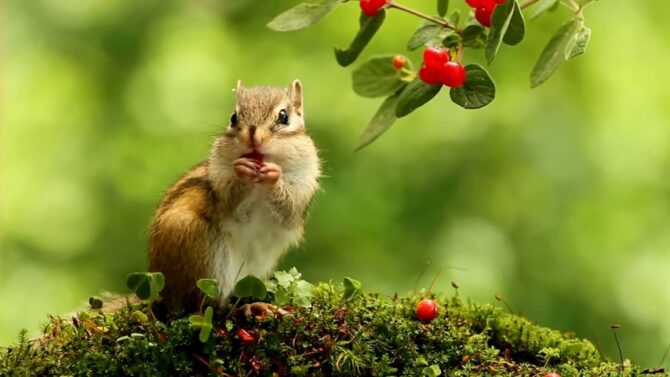
As summer blankets the earth with warmth and the days grow longer, nature bursts forth in a riot of colors, offering a banquet of fresh fruits. For squirrels, this season is a time of abundance and culinary exploration.
The Allure of Berries
Berries, with their vibrant hues and juicy interiors, are irresistible to squirrels. Whether it’s the deep red of strawberries, the dark allure of blackberries, or the blue tinge of blueberries, these fruits are a hit.
They are not only delicious but also packed with water, helping squirrels stay hydrated during the hot months. Moreover, berries are rich in antioxidants and vitamins, especially vitamin C, which boosts the immune system.
Apples and Pears: The Tree’s Bounty
Climbing trees is second nature to squirrels, and during summer, this skill allows them to access the sweet treasures that trees offer. Apples, with their crisp texture and sweet-tart flavor, are a favorite.
Pears, with their soft, juicy flesh, are equally loved. These fruits not only quench thirst but also provide essential nutrients like fiber, which aids digestion, and vitamins like vitamin A, crucial for vision.
Insects and More: Protein Sources
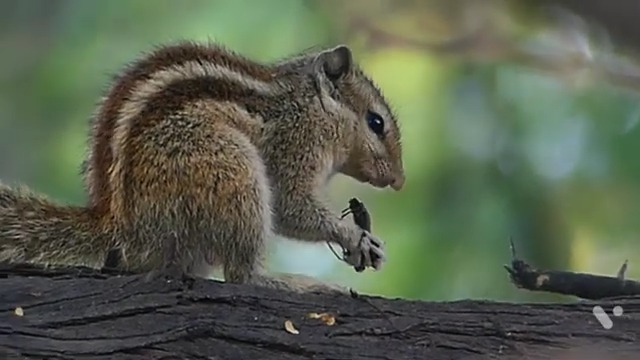
While fruits offer hydration and vitamins, squirrels, being omnivores, also need protein to maintain their muscle mass and overall health. This is where insects and other small creatures come into the picture.
The Insect Buffet
Insects are a protein-rich food source, and squirrels are not shy about including them in their diet. Beetles, with their crunchy exterior and soft insides, are a treat.
Caterpillars, despite their wriggly nature, are consumed with relish. Ants, though tiny, are hunted down for their tangy flavor, a result of the formic acid they contain.
Eggs and Beyond
The protein quest doesn’t end with insects. Squirrels have been observed raiding nests to feast on the eggs of birds.
These eggs, rich in proteins and fats, are a nutritional goldmine. While this behavior might seem ruthless, it’s a testament to the squirrel’s adaptability and drive to survive.
On rare occasions, when food is particularly scarce or the opportunity presents itself, squirrels might prey on small animals. Baby birds, fledglings still learning to fly, or weak rodents might fall victim to a hungry squirrel.
Other Foods: Bark, Leaves, and Fungi
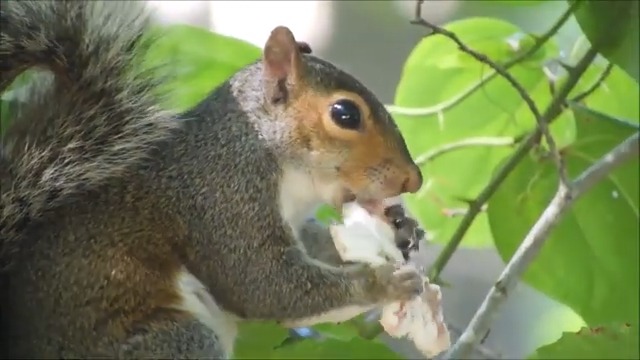
In the vast world of nature, adaptability is key to survival. Squirrels, with their curious nature and insatiable appetite, are prime examples of this adaptability.
When their usual diet of nuts, seeds, and fruits is not readily available, they turn to other sources to sustain themselves.
Bark: The Tree’s Shield
Tree bark might seem like an unlikely food source, but for squirrels, it’s a treasure trove of nutrients. The inner layer of bark, known as the cambium, is rich in sugars and other nutrients.
During winter or in times of scarcity, squirrels will strip and eat this layer, gaining vital sustenance. This behavior, while beneficial to the squirrel, can sometimes harm young trees if done excessively.
Leaves: Nature’s Salad
While not a primary food source, leaves can provide squirrels with essential minerals and trace nutrients. Young, tender leaves are especially favored due to their softer texture and higher moisture content.
Fungi: The Forest’s Delicacy
Fungi, including mushrooms, are another food source for squirrels. They are rich in protein and offer a variety of other nutrients. However, squirrels have to be cautious, as not all fungi are edible.
Some mushrooms can be toxic, but squirrels seem to have an innate ability to discern which ones are safe to eat.
Hydration is Key
Water is essential for all living beings, and squirrels are no exception. They need it for digestion, temperature regulation, and overall health. During the sweltering summer months, they can often be seen sipping from puddles, streams, or bird baths.
Storing for the Future
Squirrels are not just foragers; they are also planners. Their ability to think ahead and prepare for leaner times is truly remarkable.
The Art of Caching
Caching is the practice of storing food in various hiding spots. Squirrels are masters at this. They will bury nuts in the ground, tuck them away in tree hollows, or even hide them under leaves.
Each squirrel has its own system, and some even go to the extent of creating fake caches to throw off potential thieves!
Winter’s Challenge
As winter sets in and food becomes scarce, these caches become invaluable. They ensure that the squirrel has a steady supply of food, even when snow blankets the ground and fresh food is hard to come by.
This foresight allows squirrels to survive and thrive, even in the harshest of conditions.
Squirrels in the Ecosystem

Squirrels, with their playful antics and bushy tails, are often seen as entertaining backyard visitors. However, their role in the ecosystem extends far beyond providing us with amusement.
Seed Dispersers and Forest Regenerators
One of the most significant ecological contributions of squirrels is their role in seed dispersal. As they bury nuts and seeds for future consumption, they inadvertently forget some of these caches.
Over time, these buried seeds germinate and grow into new plants and trees. This not only aids in forest regeneration but also ensures a diverse plant population.
Natural Pest Controllers
Squirrels’ consumption of insects serves a dual purpose. While it provides them with essential protein, it also helps control insect populations.
By preying on beetles, caterpillars, and ants, squirrels help maintain a balance in the ecosystem, ensuring that no single species becomes overly dominant.
Prey in the Food Chain
In the circle of life, squirrels also play the role of prey. Larger predators, such as hawks, owls, and foxes, rely on squirrels as a food source.
This predator-prey relationship is crucial for maintaining the balance and health of the ecosystem.
Attracting Squirrels to Your Yard
For those who enjoy the company of squirrels, there are several ways to make your yard more inviting to these furry acrobats.
Planting the Right Trees
Trees that produce nuts or fruits are squirrel magnets. Oak trees for acorns, walnut trees, and fruit-bearing trees like apple trees or pear trees are all excellent choices. These trees not only attract squirrels but also beautify your yard and provide shade.
Feeding Stations
Bird feeders, especially those filled with sunflower seeds or corn kernels, are irresistible to squirrels. While they might occasionally frustrate bird enthusiasts by hogging the feeders, watching their antics can be a source of joy. If you’re specifically catering to squirrels, consider setting up a dedicated squirrel feeder.
A Nutty Treat
Store-bought peanuts can be a delightful treat for squirrels. If you choose to offer these, ensure they’re unsalted and raw. Roasted or flavored nuts might contain additives that aren’t suitable for squirrel consumption.
FAQ
Do squirrels eat peanut butter?
Squirrels do enjoy peanut butter, but it can be addictive and fattening. It’s important not to let them develop a habit of consuming it. Additionally, feeding them directly from your hands can lead to dependency and potential harm from scratches.
When do squirrels eat?
Squirrels are diurnal, meaning they forage during the day and sleep at night. Those that hunt might adjust their patterns based on their prey’s activity, but generally, squirrels are not active after dark.
Do squirrels eat meat?
Yes, squirrels can consume snakes, small birds, and wet pet food. However, they have a preference for nuts and berries. Flying squirrels, which mostly live above ground, tend to eat more meat than other species.
Can squirrels eat bread?
While squirrels can consume bread, it’s not recommended due to the high sugar, starch, and salt content, which isn’t good for their digestive system.
Which vegetables do squirrels prefer?
Squirrels enjoy a variety of vegetables, including tomatoes, beans, cucumbers, eggplants, and lettuce. They particularly like crunchy vegetables.
Do squirrels like flowers?
Yes, squirrels often nibble on flower bulbs. They might take a few bites and leave the rest of the flower untouched.
Is it safe to give Easter Eggs to squirrels?
No, chocolate contains theobromine, which is harmful to small mammals, including squirrels. Consuming it can lead to trembling, seizures, heart issues, and even death.
Final Words
Squirrels are intricate threads in the tapestry of our ecosystem. Their roles, from seed dispersers to prey, highlight their importance in maintaining ecological balance.
By understanding their habits and needs, we can foster a harmonious relationship with these creatures, ensuring that both humans and squirrels benefit from our shared environment.
